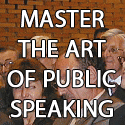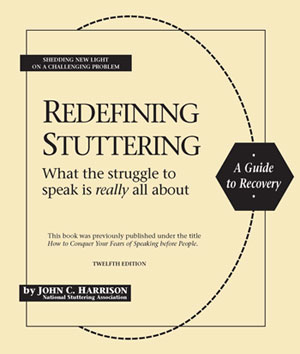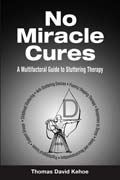I have spoken briefly in previous posts, about the different forms of speech therapy for stuttering that are available to people who stutter, and I have also spoken briefly about the various methods of approaching the psychological side of stuttering/stammering, but are you aware that you can alter your experiences associated with stuttering/stammering, (and speaking anxiety in general), by actively altering the way that you see and interact with other people, and the world around you.
 I believe that stuttering is like a vine that has wrapped itself around every aspect of your being, and in order to remove the influence of stuttering from your life, you not only need to look at using some of these mainstream speech therapy approaches, but you also need to understand how these vines have formed, and how they influence your behaviour, and then how to go about removing these vines. These vines are made up of issues to do with:
I believe that stuttering is like a vine that has wrapped itself around every aspect of your being, and in order to remove the influence of stuttering from your life, you not only need to look at using some of these mainstream speech therapy approaches, but you also need to understand how these vines have formed, and how they influence your behaviour, and then how to go about removing these vines. These vines are made up of issues to do with:
1) Judgement
2) Perfection
3) Expectation
4) Power
5) Control
6) Acceptance
7) Approval
.8) Fear
Now this is by no means an exhaustive list of what I believe make up the vines that hold stuttering in place, but I believe that they encompass many of the major issues that we all need to look at. As mentioned, this list is not exhaustive and each of us will have additional vines specific to our own persona, but I think what I have to say here, will get you thinking about the type of individual emotion or behaviour, that could be holding stuttering and speaking anxiety in place for you. You are unlikely to read this anywhere else so let’s go slowly and look at these in turn closely.
Judgement
Judgement makes up one of the main vines that holds stuttering in place. When you are speaking in a dysfluent manner, you are invariably engaged in running a “mind reading” program in your head, while at the same time you are trying to operate a communications program. This mind reading that is going on is a process of assessing how the other person, and any secondary or adjacent listener, is judging you while you are in the process of speaking, and more likely, stuttering. This additional program that is running, may account for some of the unusual brain activity witnessed in the brain of a person who is stuttering, as this program is highly, and probably abnormally, active while we are speaking. Now we all think we know exactly how the other person is judging us, and the fact of the matter is that, for all intents and purposes, in our world, we DO know what the other person is thinking. So how is it that we know how we are being assessed or judged? Well the real fact of the matter is that we DO NOT know what the other person is thinking at all, and if in fact they are judging us in a positive or a negative manner, if there is any judgement going on at all. What we are certain of is our own perception of judgement by the listener towards us, and that is all that really counts in our concept of what is real. The fact of the matter is that the toxic judgements that we are experiencing, are in fact our own judgements of our self, that we are bouncing off the other person back at our self. Now this does not only apply to people who stutter, but every one of us when we experience some form of performance anxiety e.g speaking in front of a group. So why is it that we judge ourselves negatively, and how can we correct this errant thinking. Well it is perception of our own experiences in life, but more so it is a reflection of our own personal ethos and approach to life. If you are judgemental in your thinking towards others, who display some form of disability or unusual behaviour, then to that same degree of judgement will you apply it to yourself, through the eyes of others. If you are judgemental of others, you will surely use that same criteria of standards to bounce your own judgemental thoughts about yourself, off the other listener to that same degree, and depending how toxic those thoughts are, your level of anxiety about that judgement that will affect your speaking performance will follow. You may want to read that again, to ensure that you have absorbed what has been said there, as it is VERY important to understand and embody from this point on. The secret to unwinding this vine, that is holding your stuttering in place, is to look on all fellow humans for what they are, a fellow human, who like you, experiences a range of emotions, including love, and never attempt to pass a judgement on them in any situation. Human existence is a tapestry of dichotomies and differences. Behind those eyes or that voice is a soul that is connected to your soul, and any behaviour you experience, both acceptable or unacceptable to you, is just “you on another day”. It is behaviour that you yourself have demonstrated, or are likely to demonstrate in the future at some time. If you must judge, judge others for the differences and uniqueness that God has given them, in a positive and accepting way, and you will soon find that you are judging your own, less than perfect speaking behaviour, in the same more accepting way when you speak to others. By beginning to live your life with a less judgemental approach to others, you will begin to remove one of the major vines that is holding your experience of stuttering in place.
Perfection & Expectation
Another vine that is holding stuttering in place in your psyche, is the concept of perfection. Many of us have the illogical concept in our brain, that certain activities must be executed in a more than socially acceptable or perfect manner. Perfection is a result of fear. We believe that our speech pattern has to be perfect in any particular situation, otherwise we will not make the desired social impression, and we have a belief that that is bad, and will result in an undesirable outcome. The result of this is procrastination and avoidance. It is the content of your mind, not the speed and fluency of your delivery, that is what is important. Whether you are a person who stutters or not, aiming for increased knowledge is achievable, perfection in speech delivery is less achievable for the majority of us, so should be viewed as a skill that we may or may not have, not a prerequisite for social acceptability. Aiming for perfection will add to your speaking anxiety, add to your procrastination in moving forward in any situation, and add to your avoidance behaviour in situations where you do not believe you will be able to reach your expectations. If your expectations are too high, or are not reasonable given the facts that operate in any situation, then you are just continually setting yourself up for frustration and disappointment, however that manifests itself in your behaviour and your speech. Shed the vine of perfection by practicing some deliberate dysfluency. Although the logic of deliberately being dysfluent may seem a foreign concept to you, it is totally different to the normal stuttering behaviour that you experience, in that in the “real” stuttering moment you are “out of control”, and in some cases at the exact moment of the speech block your “awareness” is not fully present. In a “deliberate stuttering” situation, if it is performed correctly, you are “in control” and your “awareness” is present. You are able to see that imperfection in speech delivery is something that most people overlook, especially if you give them the vibration that you are OK with it. Shed the vine of perfection, and bring your expectations in line with the reality of the situation, and further remove one of the supporting vines that holds stuttering in place for you in your world.
Power & Control
Another set of vines that tend to hold stuttering in place are issues to do with Power and Control. Many people who stutter, are reluctant to exercise a level of power and control in their life, out of fear of how it may impact on them in the eyes of another. Many people who stutter tend to figuratively see a verbal exchange as taking place on a small mountain, where one person has to be on top of the mountain, while the other has to be on the bottom. In any verbal exchange many people who stutter, tend to subconsciously assess who should be on top, and who should be on the bottom. Invariably the person who stutters tends to place themselves on the bottom and, figuratively speaking, hand control of the situation to the other person, who they have given their power to, and place them on top. In many cases it is akin to handing the remote control that determines your behaviour, over to the other person. In many cases there is no logical justification, as to why the other person should be given control of the situation. It could be for as little a subconscious reason as their assertive or authoritarian look, or the tone of their voice, but more likely their perceived authoritative position. Invariably after some form of treatment for our dysfluency, we often manage to place ourselves on the top of this fictitious mountain, only to feel most uncomfortable in this position, and thereby placing added stress and anxiety on ourselves. Many of us choose to subconsciously gravitate back to the bottom, where we feel more comfortable, and this is one of the less understood psychological factors that leads to the concept of stuttering relapse. Allowing the vine of power and control to dictate your response, in any speaking situation, places unnecessary performance anxiety on you, and the result for a person who stutters, is increased dysfluency. It is better to see the situation in a way that there is not one mountain, but a mountain for each person. Each person is on his own mountain rather than one on top and one on the bottom. If you must see the world as a single mountain, when you are in verbal exchange, then take the position of power on top, but exercise that power with understanding, compassion and empathy and do not try to control and manipulate others to your own benefit. The power and control vine holds your stuttering behaviour in place, by making you feel uncomfortable whenever you are speaking to a person who perceptions have you believe is in a position of authority. Accept that you have the right to your own level of power and control in these verbal exchanges, and shed this vine from the mix, and further loosen the grip that stuttering has on your sense of self.
Acceptance
The next vine I would like to talk about in this post is that of acceptance. In order to begin to remove the vine of acceptance, we must first accept what is. We must all learn to start from a base of acceptance of what is. No matter what it is in your life that you are not happy with, you must first deeply and completely accept its existence as a fact. If you are a person who stutters, you MUST accept that fact. If you cannot accept it as your reality, then you will continue to hold it as your reality when you start to try to loosen its grip on your life’s direction. Not only must you privately accept this fact, but publicly accept it as well. If you refuse to accept the total reality of your stuttered speech, and speaking anxiety, you will always be trying to hide it, ever if you learn to control it. If you are a person who stutters, and are attempting to use a technique to try to control your stuttering, you will always oscillate towards trying to hide it by trying to “sound normal”, or trying to “sound like the other person”, instead of doing what you need to do to control and improve your fluency. Accept your situation and this vine will also begin to lose the support it is giving to your dysfluency problem.
Approval
We all seek some degree of approval, but as a person who stutters this need for approval can often work in a counterproductive way, in that whenever we believe that the listener may not approve of what we are about to say, we increase our anxiety level and the result is invariably greater dysfluency. It is OK to not receive full approval for our opinions, and for what we have to say. No one is always going to agree with what you have to say, and no one is going to always like what you have to say, but if you respect others, speak to them as you would have them speak to you and speak from the heart with others mental welfare in mind, whenever possible, you can remove the vine of approval that is another support surrounding your stuttering.
In the next post I will talk about the most important vine of all. That of fear and how you can seek to remove fear not only from your speaking environment but also from you life in general. In the meantime, I again urge you to subscribe to my RSS feed or email notification, so that you do not miss posts about subjects and content that you will not read anywhere else. If you found this post useful or thought-provoking in any way, please make a comment.
Comments:









{ 4 comments… read them below or add one }
i am a 34 year old male stutterer. i have been reading your feed for about a year now, and i just want to say that i think you come up with the most profound and thought-provoking things to write about. well done. thank you. keep it up. 🙂
for example, i think of myself as being a profoundly non-judgmental person (off the scale P on the Myers-Briggs personality type test), yet although i try to approach other people's disabilities and misbehaviours non-judgementally, in the spirit of trying to understand them, i guess i am very critical of my own speech dysfluency. i wonder what kind of denial is going there…
Thank you very much for this article Stuttering Jack.
Sometimes it's quite difficult to realize my problem, but when I am reading your articles I am starting to analyze and understand what is really happening in my brains and thoughts..
Best wishes from Eastern Europe.
Great Article Jack!
Amazing,Hope it helps me in my life